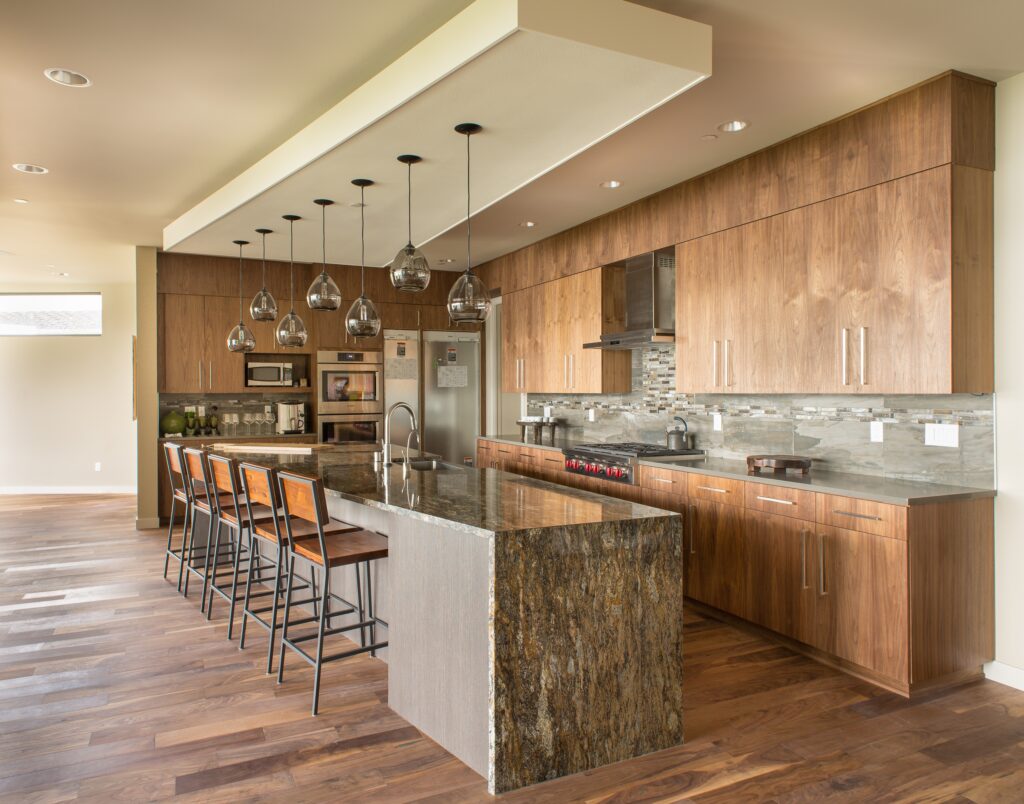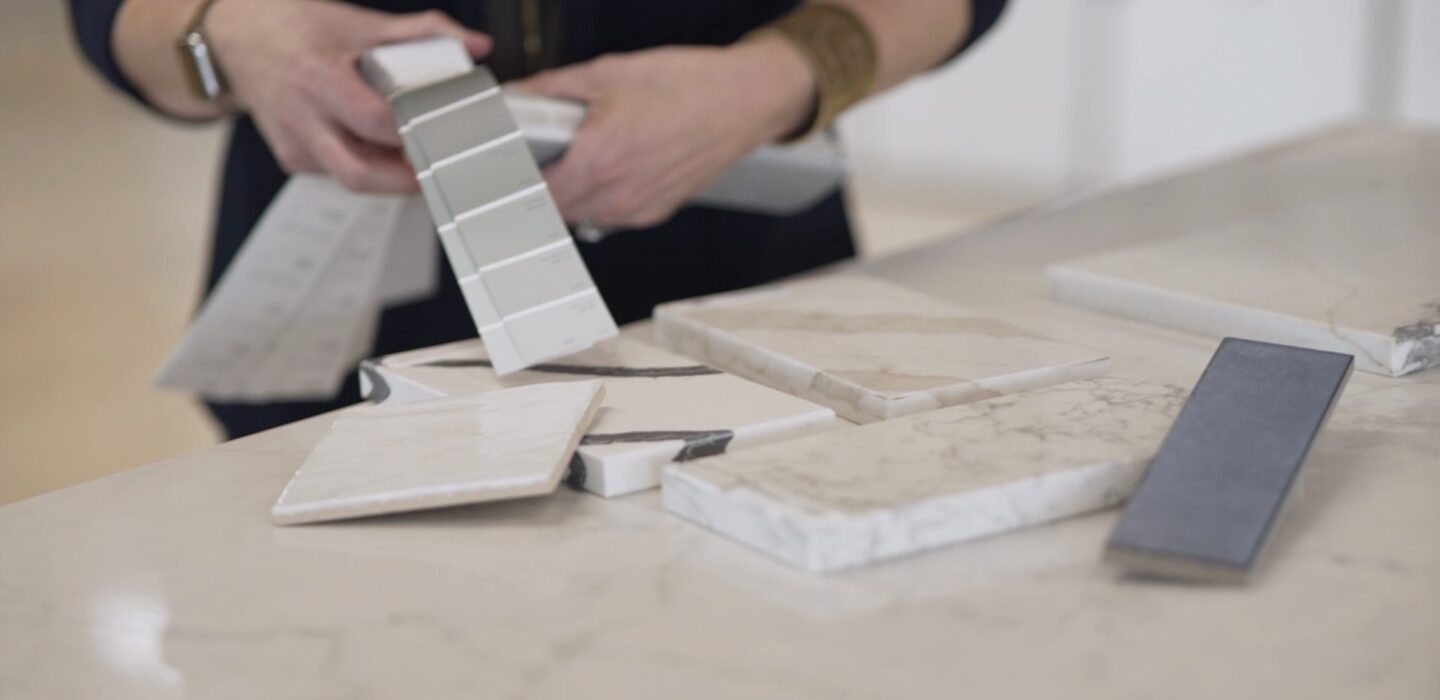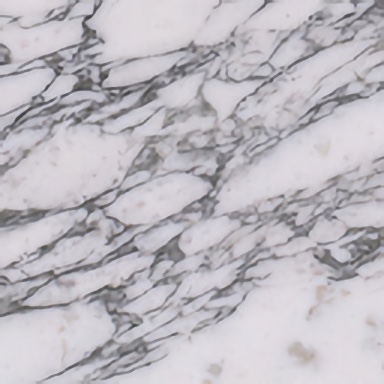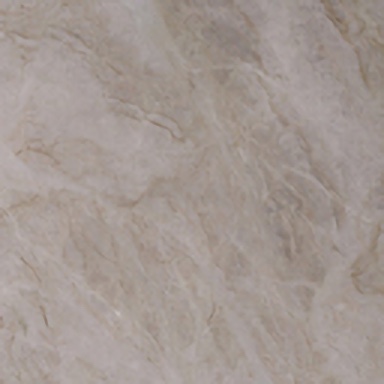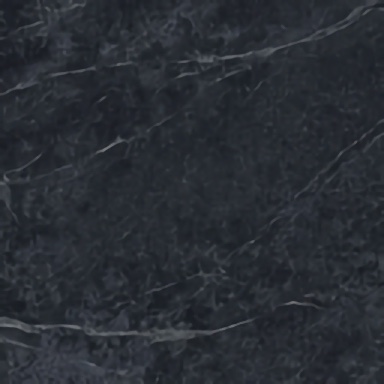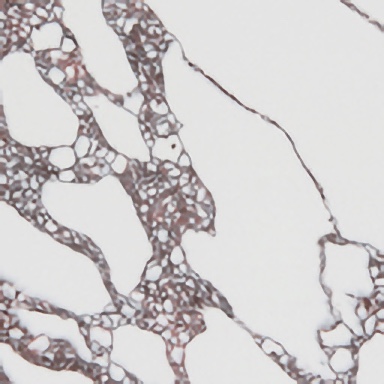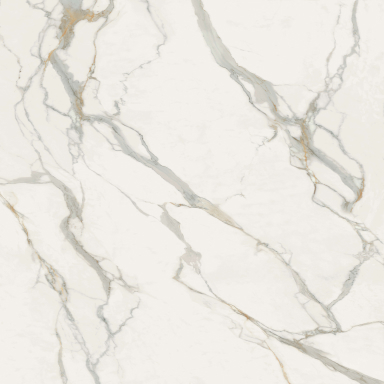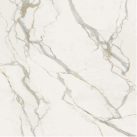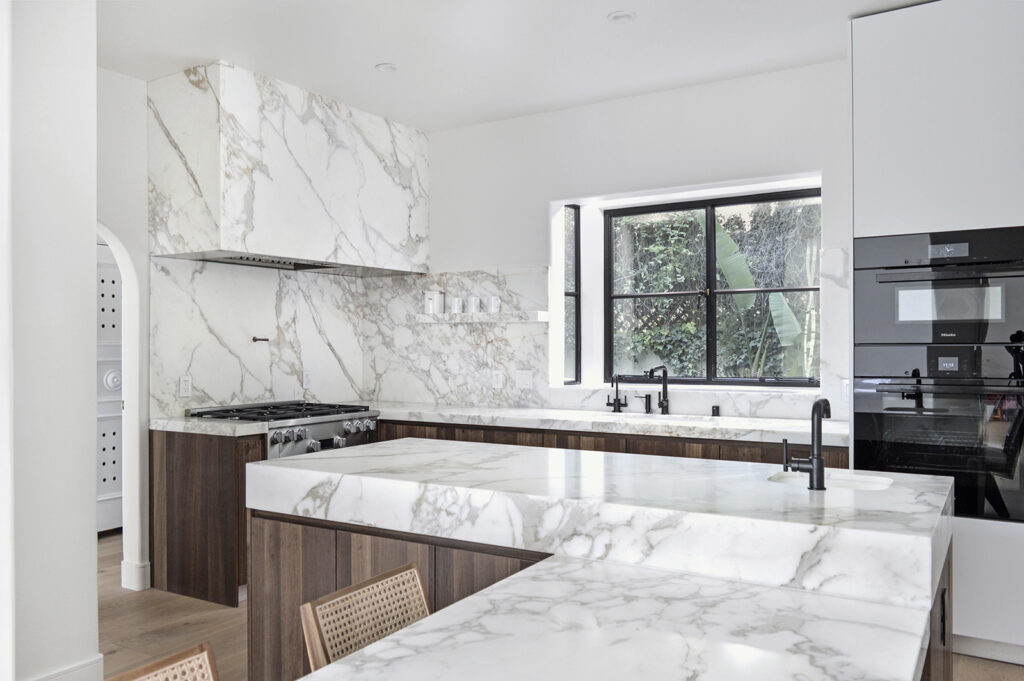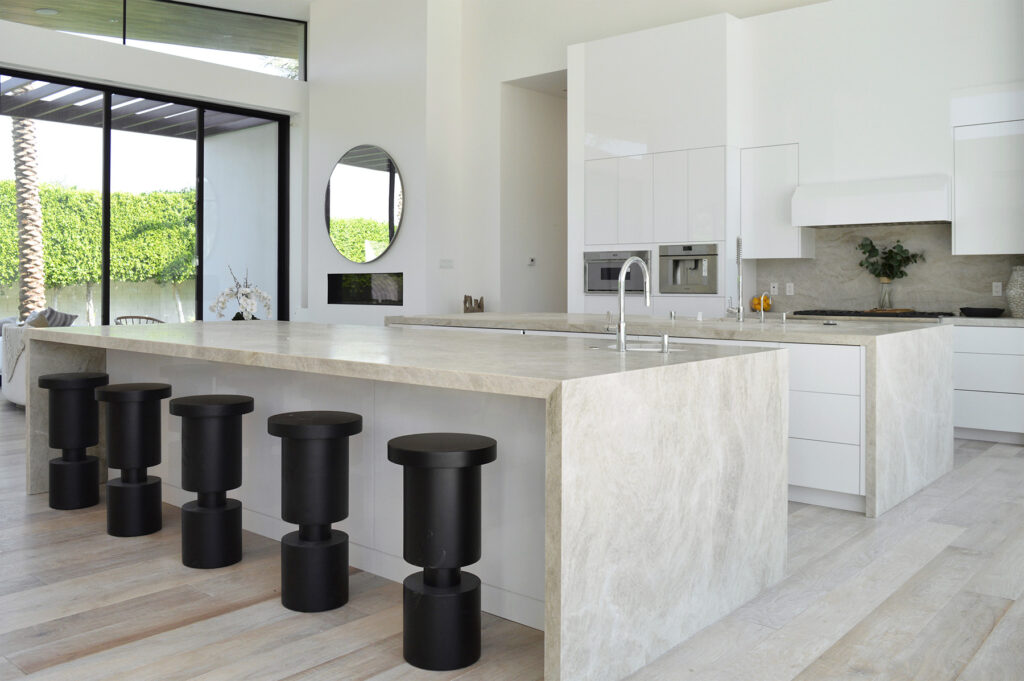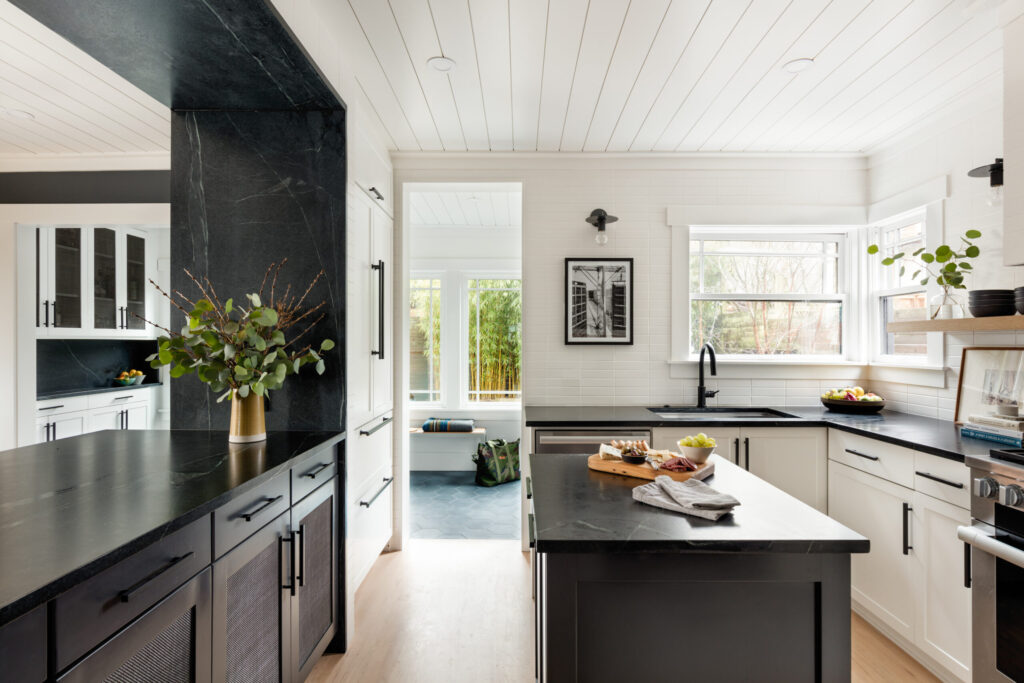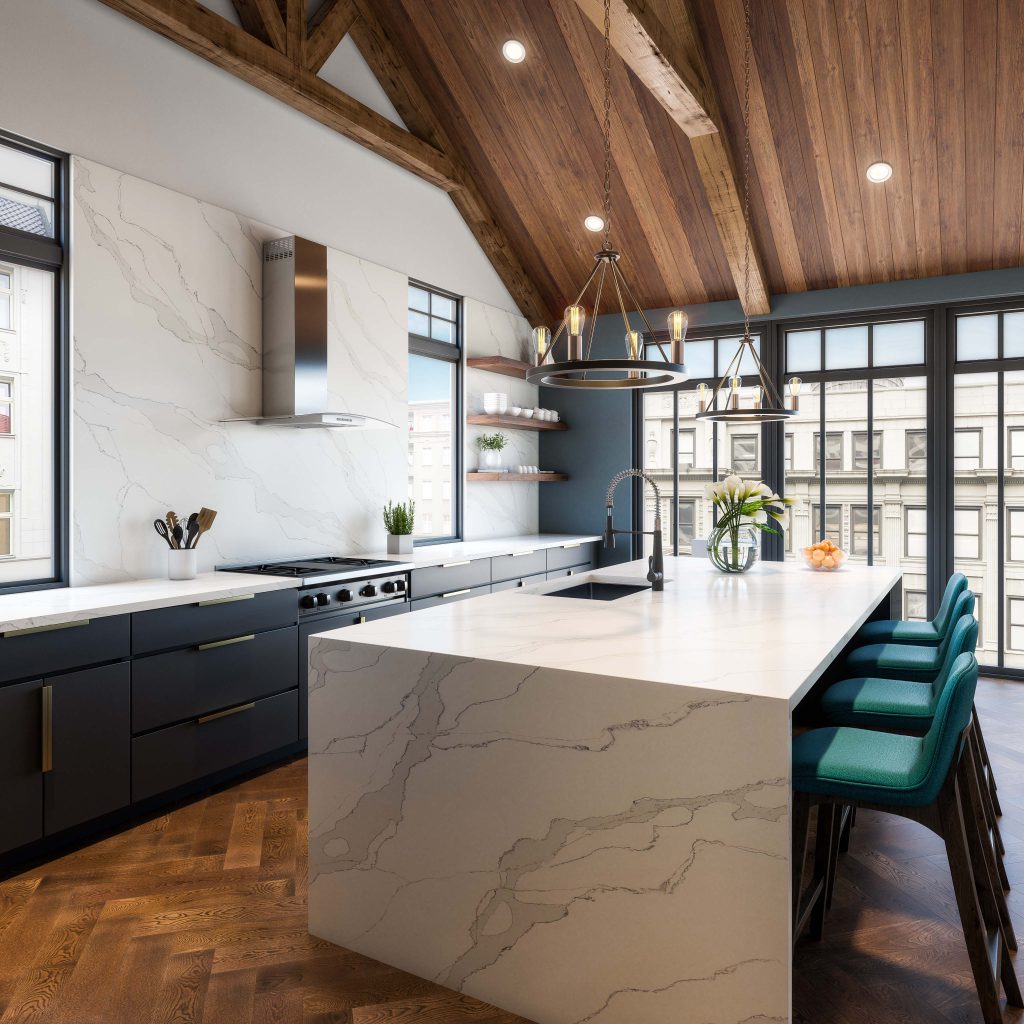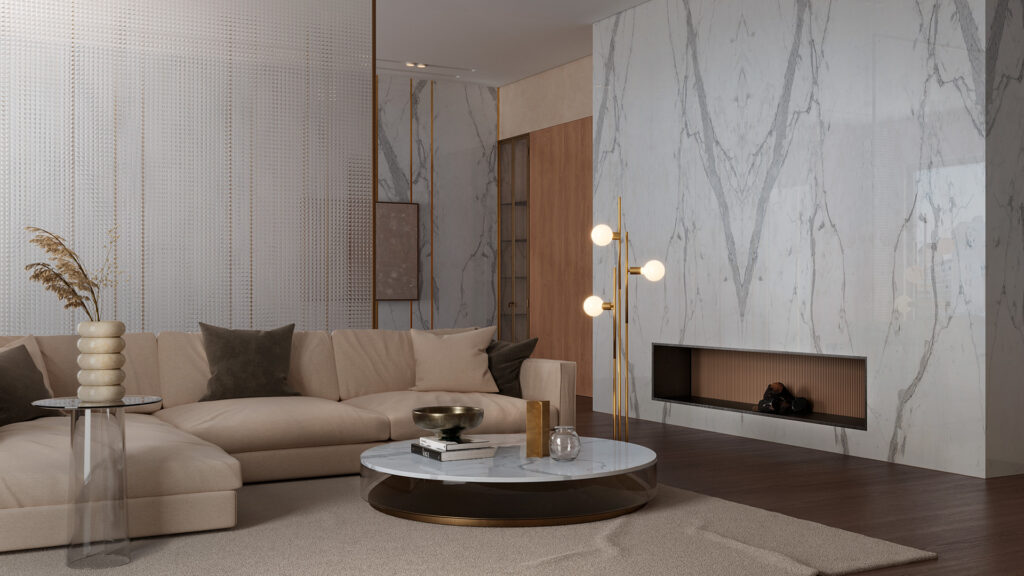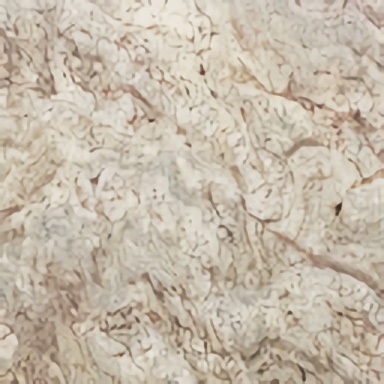
Granite
An igneous rock consisting
of quartz,
feldspar and mica
feldspar and mica
Granite typically shows more static coloration with small flecks or grains of minerals uniformly distributed throughout the stone. Some “exotic granites” will have veining patterns similar to marble.
Color ranges from light to dark but mostly within a neutral palette:
White / Cream / Tan / Beige / Gray / Black
Material in the accompanying photo: Cosmos
